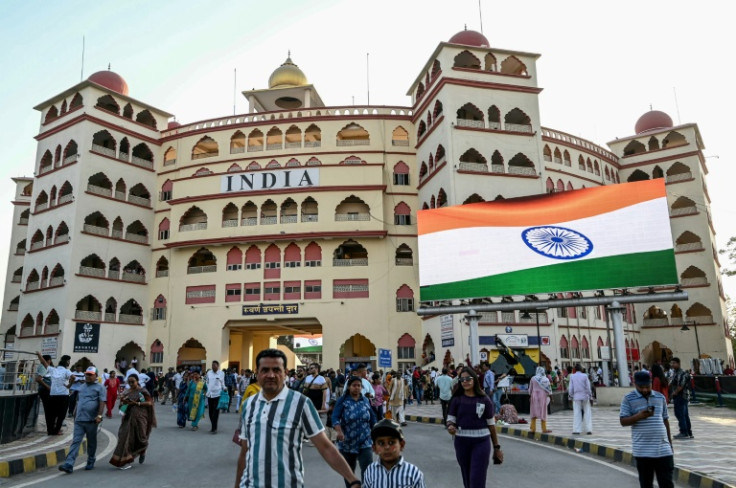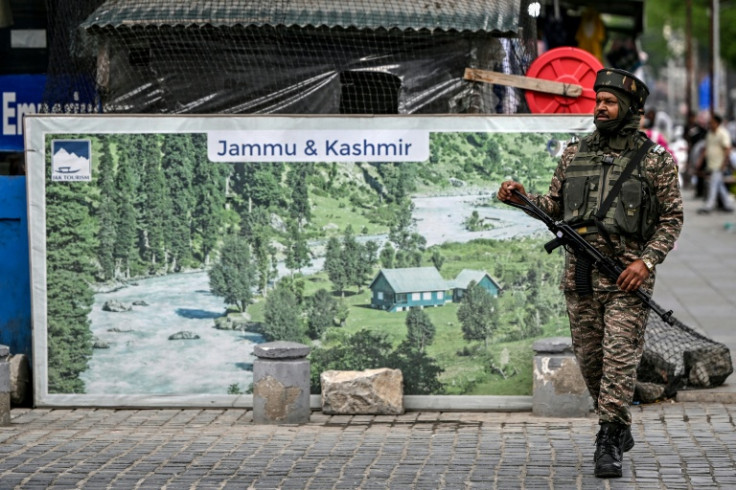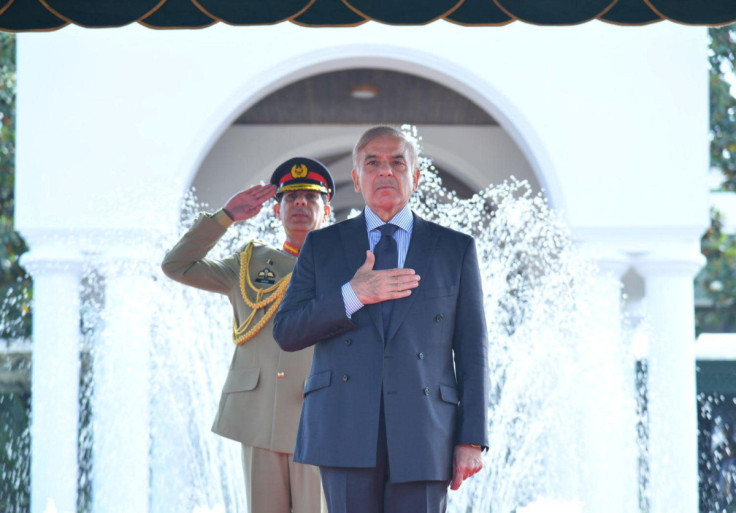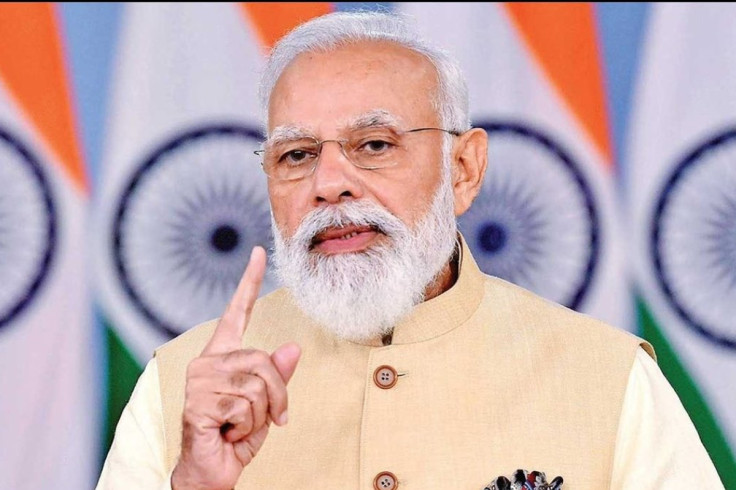Why Is India Attacking Pakistan and What is Operation Sindoor: What You Need to Know
Speaking to reporters in the White House, US President Donald Trump said, 'It's a shame... I hope it ends very quickly,'

In the early hours of Wednesday, India launched airstrikes on Pakistan in the dead of the night, which has escalated tension between the two nations.
According to the Pakistan military, at least 26 civilians were killed in the attack by the neighbouring country. On Wednesday, Reuters reported that the Pakistani army's shelling across the border in Indian administered Kashmir has killed 10 civilians and wounded 48.
The escalation has not only reignited the longstanding conflict over Kashmir but also triggered a series of diplomatic, military, and even water-related threats that have drawn international concern.
Reuters reports that Pakistan's foreign ministry said they have summoned India's Chargé d'Affaires. 'It was conveyed that India's blatant act of aggression constitutes a clear violation of Pakistan's sovereignty. Such actions are in contravention of the UN Charter, international law, and established norms governing inter-state relations,' the Ministry said in a statement.
What is Operation Sindoor?
Under the name 'Operation Sindoor' the Indian government claims the strikes were aimed at militant infrastructure across the border in response to a recent deadly attack in Kashmir, while Pakistan has labelled them a 'cowardly act of war.'
As per India's Col. Sofiya Qureshi, the first woman officer to command an Indian Army contingent at a multi-national military exercise, the operation lasted 25 minutes from 1.05 a.m. to 1.30 a.m. local time.
The operation name holds a deep meaning and significance for India, and it was deliberately chosen by the country for its military operation. 'Sindoor' is often referred to as the red vermilion, or powder, many Hindu married women wear as a symbol of their marriage, and tragically, seven Indian women were widowed during April's attack on civilians in Indian-administered Kashmir.
What Triggered the Strikes?
The airstrikes were followed by one of the deadliest attacks in Kashmir in recent years. The April 22 incident in the tourist town of Pahalgam, a resort town in Indian-administered Kashmir, where 26 tourists were killed. The nation and its citizens were left shocked by the attack, which sparked accusations from Indian officials pointing to Pakistan-backed militants. Islamabad has firmly denied any role.
Since the attack, the Line of Control (LoC)—the de facto border in Kashmir—has seen nightly gunfire exchanged between Indian and Pakistani forces, according to the Indian army.
According to reports, India says the strikes were aimed at neutralising sites used to 'plan and direct' terrorist operations. 'Justice is served,' the Indian army said in a brief social media statement after the operation. India's External Affairs Minister has also made his his first public comments on the attack. 'The world must show zero tolerance for terrorism,' Jaishankar said in a post on his official X account.
Where India Struck — and What Happened
Reports coming from India suggest that the nation's Defence Ministry has confirmed that it had hit nine sites across three regions: Muzaffarabad and Kotli in Pakistan-administered Kashmir, and Bahawalpur in Pakistan's Punjab province.
Pakistan's military spokesperson, Lieutenant General Ahmed Sharif Chaudhry, stated that at least three people, including a child, had been killed and 12 others injured in the missile strikes. One strike reportedly hit near a mosque in Ahmedpur East, where rescue teams are trying to free a trapped family.

Additionally, a blast was also heard early Wednesday in Srinagar, the largest city in Indian-administered Kashmir, according to CNN. The cause remains unconfirmed. On Wednesday, Indian authorities ordered an evacuation of citizens to safety as several areas in Kashmir had been deemed dangerous.
Civilian infrastructure has also been impacted, reportedly. Pakistan International Airlines grounded all domestic and international flights indefinitely, and airlines such as Air France and Lufthansa have begun rerouting to avoid Pakistani airspace.
Pakistan's Reaction: Emergency and Retaliation
According to reports, Pakistan has declared a state of emergency in Punjab province under its administration, with hospitals and emergency services placed on high alert. Prime Minister Shehbaz Sharif condemned the attacks, warning that Pakistan 'fully reserves the right to respond forcefully' and vowing a 'robust response.'
'All of our air force jets are airborne,' said General Chaudhry, adding, 'This cowardly and shameful attack was carried out from within India's airspace. Let me say it unequivocally: Pakistan will respond to this at a time and place of its own choosing.'
While speaking to TRT World, Pakistani Minister for Information and Broadcasting Attaullah Tarar warns that 'the whole nation is united against Indian aggression.' He said, 'We are a peaceful people, but when it comes to challenging us, the whole nation will respond and the whole nation is united against Indian aggression, and standing behind the armed forces of Pakistan.'
A meeting of the National Security Committee is reportedly scheduled to take place in Islamabad on Wednesday morning to discuss the situation.

According to CNN, Pakistan's military claims it has shot down two Indian Air Force aircraft, though this has not been independently verified. 'We can confirm that two Indian Air Force aircraft have already been shot down,' said Lt. Gen. Chaudhry. The Indian Ministry of Defence has yet to confirm.
Water Tensions Add to the Crisis
Soon after the Pahalgam attack, India announced that it would suspend its participation in the Indus Waters Treaty, a longstanding agreement governing water-sharing between the two nations. Speaking in New Delhi, Prime Minister Narendra Modi said, 'India's water used to go outside, now it will flow for India... and be utilised for India's interests.'

Pakistan, which relies heavily on these waters for agriculture and consumption, has warned that tampering with its rivers would be considered another 'act of war.'
Global Reactions and Mediation Offers
According to US Congressman Shri Thanedar, the attackers were focused on killing Hindus, describing the violence as 'barbaric.' On his X (formerly twitter) he wrote, 'India has the right to defend itself... and retaliate.' Meanwhile, on Tuesday, the US issued a formal call for restraint. 'We continue to urge Pakistan and India to work towards a responsible resolution,' said State Department spokesperson Tammy Bruce.
Speaking to reporters in the White House, US President Donald Trump said, 'It's a shame... I hope it ends very quickly,' noting the historical tensions between the two sides. The UK has also reacted to the airstrikes, with Labour MP Stella Creasy describing the developments as 'deeply concerning.'
Meanwhile, Iranian Foreign Minister Abbas Araghchi is expected in New Delhi on Wednesday, following talks in Islamabad earlier this week. Tehran has offered to mediate and is the first senior foreign diplomat to visit both countries since the Pahalgam attack.
China, on the other hand, is expressing regret over the strike. 'India and Pakistan are neighbours who cannot be moved away, and both are also China's neighbours. China opposes all forms of terrorism,' a spokesperson for China's Foreign Ministry said. Meanwhile, UN Secretary-General António Guterres has urged the two nations to 'avoid a military confrontation that could easily spin out of control.'
According to reports, India has launched a diplomatic outreach effort to explain the rationale behind its actions. Senior Indian officials have briefed their counterparts in the US, UK, Saudi Arabia, UAE, and Russia, according to government sources.
Shortly after the operation, India's National Security Advisor Ajit Doval spoke with the US NSA and Secretary of State Marco Rubio. The Indian Embassy in Washington issued a statement saying, 'India's actions were focused and responsible, they were designed to avoid escalation while neutralising clear threats.'
With both nations hardening their positions and making clear their red lines—military, diplomatic, and hydrological—the Kashmir region is facing its most testing moment in years. Meanwhile, all eyes remain on Pakistan's next moves as it will eventually decide whether Operation Sindoor will be seen as a decisive counterterrorism strike or the beginning of a broader escalation.
© Copyright IBTimes 2025. All rights reserved.




















